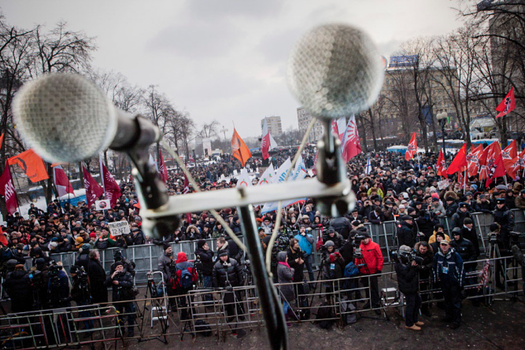
The past is a foreign country A look back at the Moscow protests of December 2011 and what’s become of their leaders, 10 years later
Мы говорим как есть не только про политику. Скачайте приложение.
Roughly 10 years ago, on December 4, 2011, elections were held for Russia’s State Duma. The official results had United Russia, the ruling party, winning 49% of the vote. The mass voter fraud that led to this result, however, sparked protests across the country — the largest since the early 1990s. The most notable events in the “Snow Revolution” or “Bolotnaya Revolution,” as the protests were referred to by the media (though this was far from a revolution) were the rallies in Moscow: the protest at Chistye Prudy on December 5, the protests on Bolotnaya Square on December 10 and on Sakharov Prospekt on December 24, and the march on Yakimanka Street and the rally on Bolotnaya Street on February 4. The “March of Millions,” an opposition march on Bolotnaya Street on May 6, ended in a clash with the police and subsequently with the “Bolotnaya Square Case,” in which dozens of people were detained. On the 10th anniversary of the protests, a time when many Russians dared to hope for sweeping political change, Meduza looks back at the leaders and what’s become of them in the decade since.
Alexey Navalny
It was during the 2011-2012 protests that Navalny became the generally accepted leader of Russia’s opposition movement. That winter’s protests began with the December 5 rally at Chistye Prudy, which was attended by between two and 10 thousand people, according to different estimates. Speaking from a stage, Navalny asked the protesters, “Do we exist?” to which they replied “Yes!” That evening, he was arrested and jailed for 15 days — his first arrest for protest activity. As a result, he missed the following day’s protest on Triumfalnaya Square, as well as the first mass rally on Bolotnaya Square on December 10.
In their coverage of the Chistye Prudy protest, Lenta.ru referred to Navalny as a “blogger” whom “thousands of people read on LiveJournal.” In the years that followed, he attempted to become the mayor of Moscow, create his own party, and run for president. Navalny and his associates have both released some of the highest-profile investigations about corruption in Russia and organized some of the country’s largest protest rallies of the last decade. Multiple criminal cases have been initiated against Navalny.
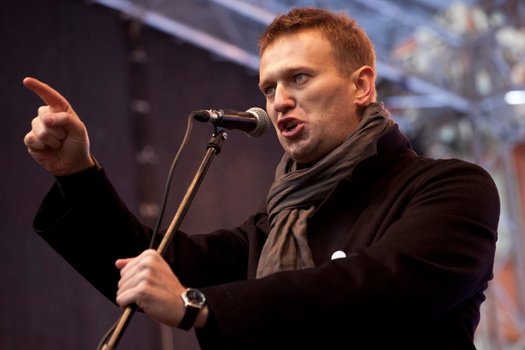
In 2020, Navalny was poisoned with a substance from the Novichok group of nerve agents. His family and associates managed to have him transported from Russia to Germany for treatment just in time. Soon after, investigative journalists released the names of several FSB agents who were believed to be involved in the poisoning (and Navalny himself even called one of them on the phone). Navalny released an investigation about Putin’s “palace,” which immediately went viral in Russia and abroad, before returning to Russia. There, his suspended sentence in the Yves Rocher case was replaced with a real one: two and a half years in prison.
In 2021, the authorities dissolved Navalny’s organization, forcing his closest associates to leave the country. Navalny is spending the anniversary of the winter protests in prison. He remains Russia’s best-known opposition figure.
Boris Nemtsov
The former governor of Russia’s Nizhny Novgorod Region and the former Deputy Prime Minister of the Russian government, Boris Nemtsov was considered one of the Russian opposition’s most experienced members. In the second half of the aughts, Nemtsov took part in the “Dissenters’ March” and the Strategy 31 movement in defense of the right to freedom of assembly (which is enshrined in Article 31 of Russia’s Constitution). In 2011, he helped organize the first rally on Bolotnaya Square and the December 24 rally on Sakharov Street, the culmination of the numerous protest rallies that preceded it that month.
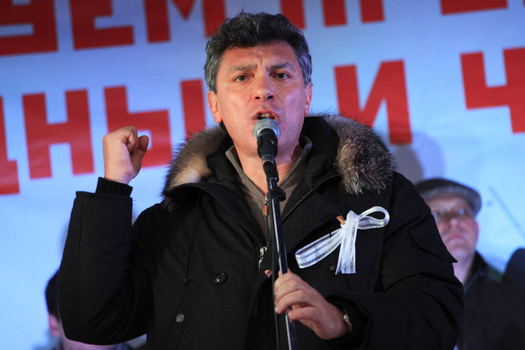
In 2012, Nemtsov continued to organize protest rallies, and during the “March of Millions” protest on May 6, he and other opposition leaders organized a sit-in. In 2013, Nemtsov — then serving as co-chairman of the liberal Parnas party — was elected to the Yaroslavl Regional Duma. In 2014, he supported the Euromaidan movement and condemned Russia’s annexation of Crimea.
In 2015, Nemtsov was murdered — one of the highest-profile political assassinations in modern Russian history. In Moscow, rallies are held every year on the anniversary of his death (even during the pandemic). Public squares have been named after him in cities abroad. In Russia, the authorities have done their best to suppress his legacy and memory.
Ilya Yashin
On December 5, the Solidarity movement organized a rally on Chistoprudny Boulevard. Ilya Yashin, one of the movement’s founders, led the rally, eventually proposing that participants march together to Lubyanka Square. Three hundred people were arrested as a result — including Alexey Navalny and Yashin himself, each of whom as sentenced to 15 days in prison (though the Russian authorities later paid them each 54.5 thousand euros ($62 thousand) for the arrest at the request of the European Court of Human Rights).
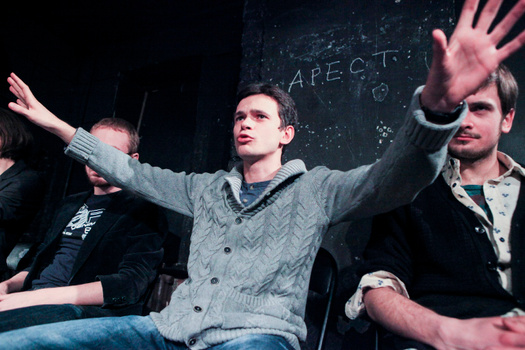
In 2011-2012, Yashin helped plan the rallies on Bolotnaya and Sakharov Streets and served on the now-disbanded Opposition Coordinating Council. In 2017, he became a municipal deputy and led Moscow’s Krasnoselsky District Council. In 2019, he organized rallies demanding that independent candidates be allowed to run in the Moscow City Duma elections — and was arrested five times in a row.
In 2021, Yashin was forced to resign from his post as the head of Krasnoselsky Region and barred from running for Moscow City Duma. The authorities cited his connections to the Navalny organization, which has been declared “extremist.”
Ksenia Sobchak
“I’m Ksenia Sobchak, and I have something to lose,” the TV host announced to the crowd on Sakharov Street on December 24, 2011. It was her first public appearance at a protest rally. Sobchak took a moderate position and called for a dialogue with those in power, and protesters reacted ambivalently: they booed her at the rally, but later voted to let her speak again at the next one.
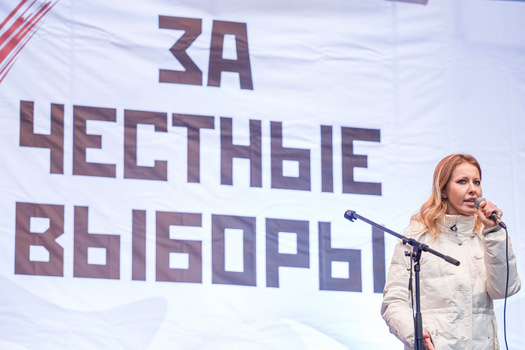
After the March of Millions, many participants of which were prosecuted for causing “mass unrest,” the authorities searched Sobchak’s apartment — despite the fact that she herself hadn’t participated in that specific rally. During the search, investigators confiscated a million euros and half a million dollars; the money was returned to Sobchak after an examination.
That wasn’t the only consequence she faced for getting involved with the opposition movement. Sobchak has complained about being removed from Russia’s central television channels, and it was only in 2017, after she announced her candidacy for president, that she returned to the air. Sobchak portrayed herself as the “candidate against all candidates,” but many people saw her run as a boon to the Kremlin. She ultimately won 1.7 percent of the vote — not the elections’ worst performance.
Since her unsuccessful presidential run, Sobchak tried unsuccessfully to break into the crab business before launching a YouTube show called “Caution: Sobchak.” The show is currently her most successful project, and she regularly conducts interviews with high-profile figures.
Eduard Limonov
On December 6, Eduard Limonov and Boris Nemtsov were arrested together on Triumfalnaya Square. Two weeks later, Limonov accused Nemtsov of ruining his rally: the December 10 rally was initially supposed to take place on Revolution Square, but after negotiations between organizers and the Moscow city authorities, it was moved to Bolotnaya Square, and as a result, Limonov and his supporters were left protesting alone on Revolution Square.
From Limonov’s perspective, on December 10, the protests’ energy was reaching its peak, and gathering on Revolution Square would maximize the protesters’ chance of achieving their goals since, with its central location right next to the Central Election Commission and the State Duma, it acted as a “nerve center,” and the police were “eager to move away” from it. “But we know the result: Nemtsov agreed on everyone else’s behalf to move people away from the center. Imagine! It was a battle. [...] You can call it idiocy, or you can call it betrayal,” said Limonov.
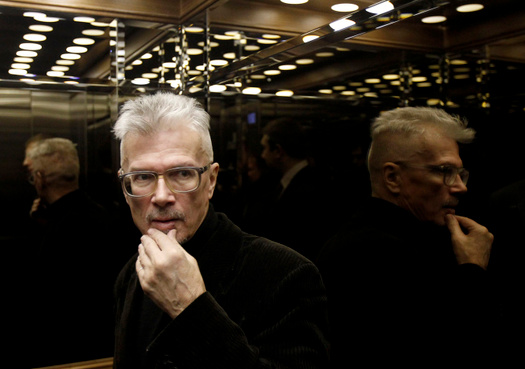
In December 2012, he stated that it was time to “give up on the mass protest” as a tool and decided to register his (then still unregistered) party, A Different Russia. In 2014, Limonov suddenly found himself in agreement with the Kremlin: Limonov, having long dreamed of a Russian Empire that extends “from Vladivostok to Gibraltar,” welcomed the annexation of Crimea and the formation of the self-proclaimed separatist republics in eastern Ukraine. He went on to publish articles in the pro-Kremlin newspaper Izvestia and columns on RT’s site with titles like “Navalny Has Failed,” “Language Genocide in Ukraine,” and “The Collapse of America.”
On March 17, 2020, Limonov died. His last book, “An Old Man Travels,” came out shortly after his death.
Sergey Udaltsov
During the winter protests, Sergey Udaltsov, coordinator of the Left Front movement, became known far beyond leftist circles. He was one of the key organizers of the March of Millions, after which NTV released the film “Anatomy of a Protest 2.” The film claimed Udaltsova’s actions had been coordinated by a Georgian “color revolutions mastermind” named Givi Targamadze. Udaltsova was accused of organizing “mass unrest” at the Bolotnaya Square protests and sentenced to four and a half years in a prison colony.
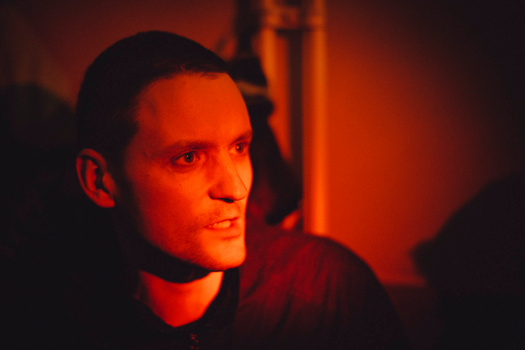
At his first press conference after his release, Udaltsov expressed his support for Russia’s annexation of Crimea and for the separatists in Donbas. Even after that, though, he continued to protest: against Putin’s victory in the 2018 presidential election (Udaltsov had supported KPRF candidate Pavel Grudinin), against pension reform, against political repression. Multiple times, he went on hunger strikes after being detained. The European Court of Human Rights awarded him nine thousand euros ($10 thousand) for violations in the Bolotnaya Square Case.
In September 2021, Udaltsov was arrested for his calls for KPRF protesters to hold a rally against the results of the State Duma elections. One of the candidates participating in the election was his wife, Anastasia Udaltsova. She had initially looked to be ahead of United Russia’s candidate, but due to the last-minute addition of some election vote counts, she didn’t proceed to parliament.
Gennady and Dmitry Gudkov
Gennady Gudkov and his son Dmitry Gudkov advocated for a review of the 2011 parliamentary election results, despite the fact that they had both won seats in the election. Gennady Gudkov, moreover, had become the deputy chief of the “A Just Russia” party’s parliamentary faction. He didn’t serve for long, however: in 2012, he was deprived of his mandate based on suspicions of illegal business activity (though no criminal cases were ultimately opened against him).
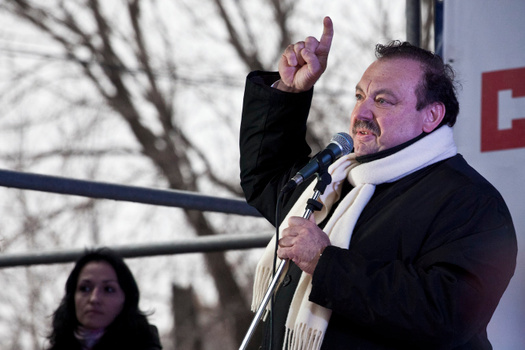
Dmitry Gudkov remained a deputy, but in 2013, both he and his father were kicked out of “A Just Russia” for their participation in the Opposition Coordinating Council. Dmitry advocated against a proposed law banning foreigners from adopting Russian orphans and refused to participate in the vote on Crimea. In the 2016 election, he lost his seat. Znak.com has called him the last independent Russian parliamentarian.
In 2018, Dmitry Gudkov and Ksenia Sobchak announced the creation of a new party called “Civil Initiative,” on whose nomination Sobchak would run for president. However, Civil Initiative was not allowed to re-register, and its activities were later suspended altogether. In 2020, Gudkov left the party, and in 2021, he left Russia because of criminal charges against him. His father had left Russia back in 2019.
Ilya Ponomarev
Before the 2011-2012 protest rallies began, Ilya Ponomarev had worked at Yukos and at Skolkovo Innovation Center, run for State Duma twice on the “A Just Russia” party ticket, and joined the Left Front movement. He joined the protests after talking with then-First Deputy Chief of Staff Vladislav Surkov, who had helped him get the job at Skolkovo. Surkov told him to “consider himself free of any obligations.” Ponomarev ultimately became one of the opposition’s most visible leaders — though he admitted, like Eduard Limonov, that he didn’t believe the protests would be successful after December 10.
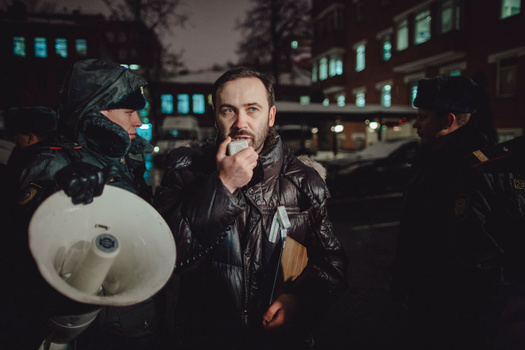
In the spring of 2013, not long before Surkov’s temporary hiatus from politics, Ponomarev became a suspect in an embezzlement case involving Skolkovo. He’s said he was able to get a personal audience with Putin, after which the authorities temporarily left him alone. But in March 2014, Ponomarev became the only State Duma deputy to have voted against the annexation of Crimea. He was openly asked to leave the country. After several months, he flew to the U.S., where he decided to stay.
Ponomarev initially worked as a consultant in the tech industry, then opened an oil company in Ukraine called Trident Acquisitions, which he planned to use to develop the Black Sea shelf. But, alas, his dream of becoming an oil magnate didn’t work out — he’s explained how he and his partners “had some really bad luck” multiple times. Today, Ponomarev lives in Kyiv, where he’s an investor. He has Ukrainian citizenship.
Vladimir Tor
Tor (whose real name is Vladlen Kralin) helped organize the Russian Marches. Nationalists joined in the winter protest wave, despite their deep disagreements with Russian liberals, leftists, and anarchists. In the fall of 2012, Tor and several other nationalists joined the Opposition Coordination Council.
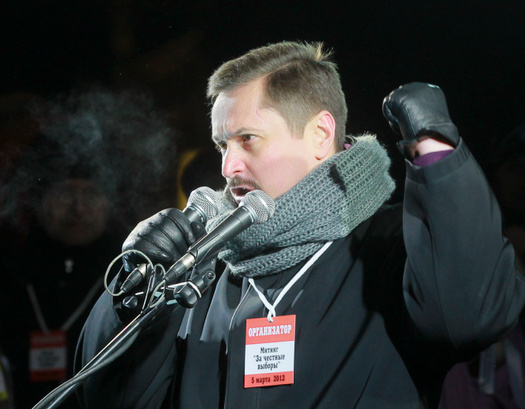
The BBC Russian Service called Tor one of the most recognizable faces of the protests’ “nationalist component” and predicted that he might become a prominent political figure if he managed to take advantage of the simplified process for party registration. The National Democratic party, whose leadership he was supposed to be a part of, however, was not allowed to register. After that, Tor gradually faded from public view.
Yevgenia Chirikova
“Boris Nemtsov and Yevgenia Chirikova led the protesters past us, and we shouted offensive words behind them through our megaphones. They headed toward Bolotnaya without even looking at us. We needed to get people to Lubyanka, to the center, to get them to come negotiate with us, to lay out our points,” recalled writer Zakhar Prilepin in an interview with Meduza about the events on December 10, 2011, when the rally was moved from Revolution Square to Bolotnaya.
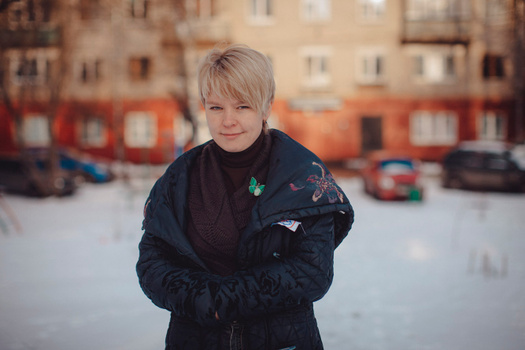
In 2011, Yevgenia Chirikova was known as an activist leader who had fought against the construction of a highway from Moscow to St. Petersburg through Khimki Forest. She worked with other activists to organize a five-thousand-person rally-cum-concert in Moscow and met with then-U.S. Vice President Joe Biden, who presented her with an award for her bravery.
In 2012, Chirikova ran in the Khimki mayoral elections but was unsuccessful. She also failed to stop the highway from being built through Khimki Forest — a toll road was opened there in 2015. By that time, Chirikova and her family had already moved to Estonia out of concern for their safety. There, she’s stayed involved in public life and environmental activism.
Alexey Kudrin
Alexey Kudrin led Russia’s Finance Ministry from 2000 and 2011, and for eight of those 11 years, he was also the country’s deputy prime minister. He left his government positions several months before the 2011 State Duma elections due to a conflict with then President Dmitry Medvedev when the two disagreed on spending issues.
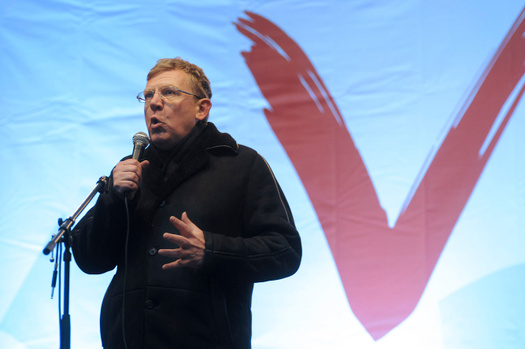
On December 24, Kudrin joined the protests on Sakharov Street. He addressed the protesters, saying he didn’t agree with the election results and calling on Central Election Commission Vladimir Churov to resign. Several protesters booed Kudrin, and Vladimir Tor, who took the mic next, said, “Forgive me, Russian people, for speaking from the same podium as Putin’s ex-Finance Minister!
Predictably, Kudrin did not go on to become one of the opposition’s leaders — he was seen more as a mediator between the protesters and the authorities than as a true dissident. He didn’t opine on whether Putin should stay out of the upcoming presidential election, and he admitted meeting with Putin both before and after the Sakharov Street rally. Still, though, he was the only person from Putin’s entourage to participate in the protests.
In December 2011, Kurdin started a Twitter account, a personal website, and a blog on Echo Moskvy, where he debated openly about whether to start his own political party. Instead, in the years that followed, he created the non-partisan Civil Initiatives Committee. In 2018, Kudrin returned to the government as the leader of the Accounts Chamber. Today, he’s viewed as one of the only establishment liberals to have managed to maintain his informal proximity to Putin.
Sergey Parkhomenko
Journalist Sergey Parkhomenko, who at the time was the leader of the Vokrug Sveta publishing house, was responsible for coming up with a way to finance the 2011-2012 protests (transferring money to journalist Olga Romanova’s Yandex.Money account), and also participated in talks with the Moscow city leadership. He served on the “For Fair Elections” organizing committee, the Opposition Coordinating Council, and the League of Voters (in addition to establishing a foundation under the same name, which has since been declared a “foreign agent”).
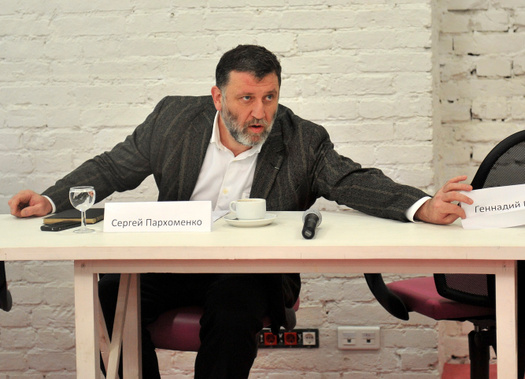
After the protests, Parkhomenko helped found Dissernet, participants of which uncovered plagiarism in the academic articles of multiple deputies and high-ranking officials, including former culture minister Vladimir Medinsky and St. Petersburg governor Alexander Beglov. Parkhomenko also launched the Last Address project, which aims to commemorate the victims of Stalin-era repressions, and won the Redkollegia award — the main award for independent journalists in Russia.
Violetta Volkova and Nikolai Polozov
Lawyers Violetta Volkova and Nikolai Polozov defended people who were detained by police at rallies throughout the 2011-2012 protest wave. It all started when Volkova decided to make an appearance at a rally on Chistoprudny Boulevard. On the day of the protest, she turned to Twitter, where she found Polozov, “an appropriate lawyer,” and asked him to come with her. That evening, more than 300 people were arrested on Chistye Prudy. The lawyers set out to free them.
In 2012, Volkov and Polozov represented members of the band Pussy Riot in court after they performed their “punk prayer” in the Cathedral of Christ the Savior. The iconic court case ended in a two-year prison sentence for members Nadezhda Tolokonnikova and Maria Alekhina, as well as multiple conflicts between Volkova, Polozov, and their defendants.
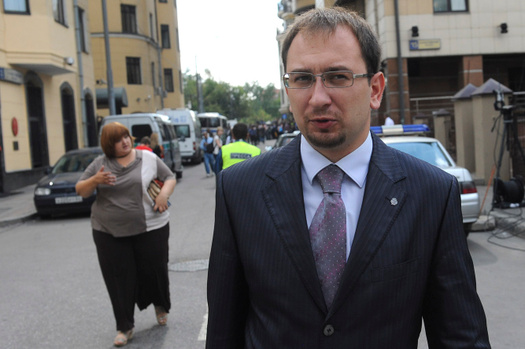
Polozov later represented Ukrainian military pilot Nadezhda Savchenko and members of the Mejlis of the Crimean Tatar People, which has been declared “extremist” in Russia. Polozov currently works both in Russia and in Ukraine.
Volkova also represented the interests of Udaltsov and Bolotnaya Square case defendant Leonid Razvozzhayev. In 2017, she represented pro-Kremlin activist Igor Beketov in an administrative lawsuit over the disruption of a screening of the film “Flight of a Bullet'' at the Artdokfest Festival. At around the same time, she criticized Navalny for collecting money for his 2018 presidential campaign and released a short film in which she accused him of dishonest accounting.
Dmitry Bykov
Earlier 2011, before the protests began, writer Dmitry Bykov took part in several projects with political overtones. Along with former Kommersant editor-in-chief Andrey Vasilyev and actor Mikhail Yefremov, he worked on the Poet and Citizen project (one of its most famous pieces of output was a satirical poem about Medvedev and Putin’s “tandem”). Bykov also helped create the Vote Against Everyone movement.
Bykov was responsible for some of the rallies’ most memorable words, including his speech on Sakharov Street on December 24 and his poster (“Don’t rock the boat — our rat might hurl!”) at the march down Yakimanka on February 4. During the protest movement’s most active period, he was part of the Opposition Coordinating Council.

After the protests, Bykov spoke out in support of Yury Dmitriev, Memorial’s leader in Karelia, and directors Kirill Serebrennikov and Oleg Sentsov.
In 2019, Bykov started to feel sick while flying from Yekaterinburg to Ufa. He was put into a medically induced coma. Five days later, he came to, then gradually recovered. Two years later, Bellingcat and The Insider released an investigation confirming that the same FSB officers who poisoned Navalny were responsible for poisoning Bykov.
Boris Akunin
Writer Boris Akunin spent the beginning of the 2011-2012 protests in a house on the English Channel, where he went on December 4 to work on a book. When he got word of the events in Moscow, though, he stopped his work and returned to Russia. On December 10, Akunin showed up at the rally on Bolotnaya Square and addressed the protesters; later he delivered a speech on Sakharov Street and took part in the writer-led protest walk through Moscow.
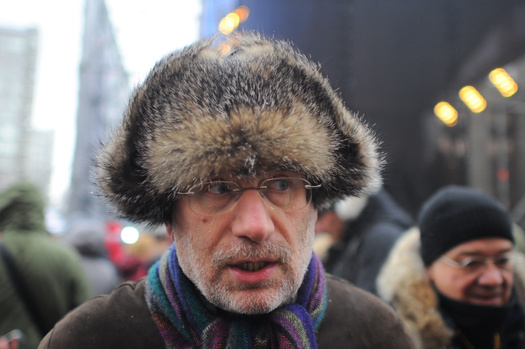
In the spring of 2012, Akunin said in an interview with Lenta.ru that the protests had removed “the question of Vladimir Putin’s lifelong dictatorship” from the agenda. “Whatever happens, that’s one thing that won’t,” he said.
He spent two and a half more years in Russia before emigrating to Europe. According to Akunin himself, his decision to move was influenced by Crimea, Donbas, Malaysia Airlines Flight 17, and Putin’s increasing approval ratings.
“I felt that I was in the minority at this celebration of life. And I realized that I’d been mistaken, I hadn’t understood my country correctly. From 2011-2013, when the democratic movement took place, I felt that I understood everything, that everything was going smoothly, that everything was going well… And now I realized that there were deeper forces at work. That it would be primitive and incorrect just to blame everything on evil Putin…” Akunin said in 2019.
Most of Akunin’s nine-volume “History of the Russian State” was written abroad. According to him, he started the project in order to understand better what’s going on in modern Russia.
Text by Olga Korelina
Translation by Sam Breazeale
(1) The Yves Rocher case
In 2014, Alexey Navalny and his brother Oleg were found guilty of embezzlement and laundering funds stolen from two Russian companies associated with the French cosmetics brand “Yves Rocher.” Oleg Navalny was sentenced to 3.5 years in prison and Alexey Navalny was given a 3.5-year probation sentence. The brothers pleaded not guilty, calling the case politically motivated. In 2017, the European Court of Human Rights declared the verdicts “unjust” and ordered the Russian authorities to pay the Navalny brothers compensation. Their sentences were never overturned, however.